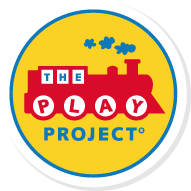How to Help Children with Higher Functioning Autism Understand Social Skills by Richard Solomon MD Do You Celebrate Kwanzaa? During Christmas break, Adam (not his real name), a 9-year-old with high functioning autism (HFA), came in to my office with his mom for what I thought was going to be a standard review of his educational,...
Author: PLAY Project (PLAY Project)
Dr. Solomon’s Research Published in the International Journal of Early Childhood Special Education (INT-JECSE)
Dr. Solomon’s research was recently highlighted in the International Journal of Early Childhood Special Education (INT-JECSE). “Findings from this study are clinically significant insofar as they suggest that high levels of depression symptoms do not impede parents’ participation in RBIs. Rather, results suggest that RBIs, such as PLAY, may be effective both at enhancing children’s...
Catching Up with Ben Gretchko
You may recognize Ben Gretchko from his viral high school commencement speech a few years ago. Though the 2020 graduation season looks different this year, we hope that encouragement can be found through Ben’s story and successes. Check out the Ben Gretchko Story video and exciting college updates below! Ben will be...
Read About Play in the American Psychological Association’s Recent Article!
“A wealth of research shows that unstructured play — play that isn’t organized or directed by adults or older peers and that generally doesn’t have a defined purpose or outcome — is a fundamental necessity for children to thrive physically, emotionally, mentally and socially” (American 2020). The importance of play is highlighted in a recent...
Avoiding the “Good Job!” Habit
By Diane Cullinane M.D. “‘Good job!’ is a phrase used frequently during treatment sessions with autistic children. What message does a child receive from hearing, ‘Good Job!’? We hope they hear our interest, encouragement and approval. However, when ‘Good Job!’ becomes a habit, is it still successful in conveying this meaning? Or, does it simply...
How Children with Autism Change What They Love
Written by Richard Solomon, MD Children with autism love to keep the world the same. It is this love of sameness that causes them to fixate on repetitive behaviors and interests that defines the disability. If allowed to stay in their own world doing the same things, their developmental outcomes are among the worst outcomes of...
Winnicott, Autism, and Play
Written by Richard Solomon, MD “It is play that facilitates growth and therefore health.” —D.W. Winnicott Recently I’ve been reading DW Winnicott, the revered British child psychiatrist who explained why children carry around and are so attached to their ‘blankies’, their security blankets, like the one Linus carries around in the cartoon series Charlie Brown....
The Beauty of the Line
Written by Richard Solomon, MD For the longest time I wondered why so many children with autism spectrum disorders (ASD) loved trains and wheels as their favorite ‘special interests’. When I finally figured it out, I not only answered my question but learned something fundamental about human nature. Let me start by telling you about the...
Why Is Autism Increasing So Much?
Written by: Richard Solomon, MD You’ve probably seen the Autism Speaks ads: “Every two seconds a child is diagnosed with autism.” As I write this today, the CDC has determined that 1 in a 54 people or 2% of males has an autism spectrum disorder (ASD)!1Ever since Bob Wright, former president of NBC, became the grandfather of a...
PLAY’s Newsletter | 1st Quarter 2020
Hello, We hope you are doing well despite the COVID-19 pandemic. We are inspired by those of you who have been innovative and creative during this uncertain time to help the children in your life. You may find our COVID-19 Guide beneficial; our COVID-19 Guide offers several free resources to help families who have a...










